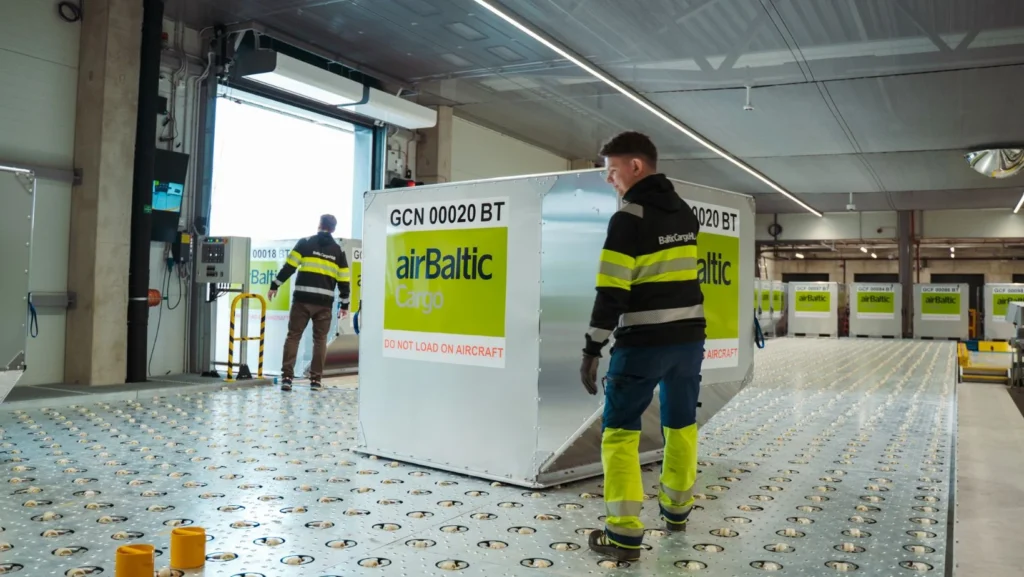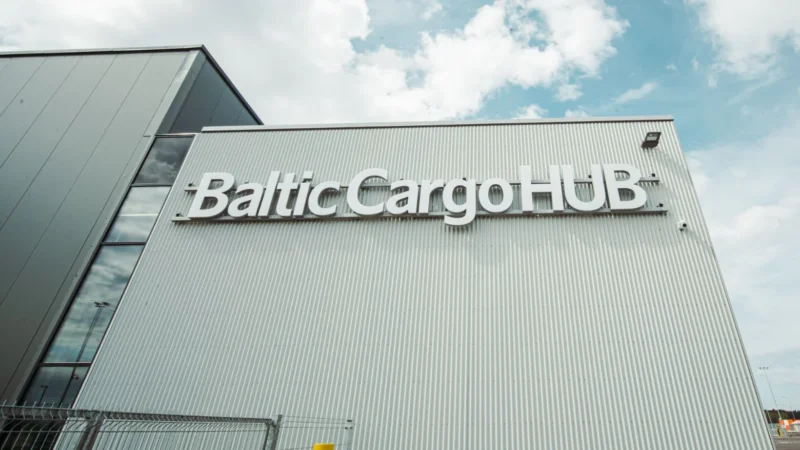Baltic Cargo Hub: Shaping the future of air freight in Northern Europe
A new chapter in the Baltic region’s logistics and air freight infrastructure has officially begun with the opening of the Baltic Cargo Hub at RIX Riga Airport in Latvia. Developed and led by the Latvian airline airBaltic, the new facility is one of the largest and most advanced air cargo terminals in the Baltics.
The hub is designed to serve all airlines – both cargo and passenger carriers that also transport freight – currently operating and planning future flights to Riga. By doing so, it significantly enhances the airport’s cargo handling capabilities and positions Latvia as a vital aviation and logistics centre in Northern Europe.
The opening ceremony for the Baltic Cargo Hub was held on 22 May 2025, gathering around 200 guests, including senior government officials, logistics partners, and industry stakeholders. The presence of Latvia’s Minister of Transport highlighted the national significance of the initiative and its role in advancing the country’s transport and economic infrastructure.
Arvīds Maurāns, executive director of the Baltic Cargo Hub told Air Cargo Management: “The launch of the Baltic Cargo Hub marks a transformative moment not just for airBaltic, but for the entire logistics and aviation landscape in Northern Europe.
“This facility represents our long-term commitment to operational excellence, innovation, and sustainability. By creating one of the most advanced cargo terminals in the Baltics, we are enabling faster, smarter, and more secure freight handling for all carriers operating at RIX Riga Airport.
“It is a significant milestone for Latvia as a strategic logistics gateway, and we are proud to be shaping the future of air cargo in the region.”
A purpose-built facility
The facility spans 6,895 sqm and is strategically located next to the cargo apron at RIX Riga Airport. This location allows for rapid and seamless cargo transfers between aircraft and terminal, reducing handling times and improving operational efficiency. Built to accommodate increasing regional and international freight volumes, the terminal is capable of processing up to 45,000 tonnes of cargo annually, tripling the previous terminal capacity.

The Baltic Cargo Hub has been created and developed to serve all airlines operating at or planning to launch flights to RIX Riga Airport – not just airBaltic.
The facility is purpose-built to support diverse freight operations across the aviation sector in Riga. The terminal features advanced, semi-automated cargo handling systems to efficiently sort and move goods of various types. It is fully equipped to process both general and specialised cargo, including temperature sensitive shipments – pharmaceuticals and perishables, live animals, valuables and dangerous goods.
Additionally, a dedicated air mail sorter enhances Riga’s capabilities as a hub for international postal logistics and can be cross-utilised for e-commerce handling.
Regulatory and compliance processes have also been streamlined through the inclusion of on-site Food and Veterinary Service offices and a dedicated Customs checkpoint, making inspections and clearance procedures faster and more efficient. These integrated services further reinforce Riga’s strategic role as a centre in the Northern European logistics network.
The launch of the hub comes at a time when the global air cargo sector is undergoing significant transformation, driven by rising demand for fast, secure, and flexible freight services. The Baltic Cargo Hub directly addresses these market dynamics by offering expanded capacity and cutting-edge infrastructure to all airline partners, whether for scheduled operations or new route development.
Sustainability and forward-thinking design played a central role in the hub’s development. The construction process utilised Building Information Modeling (BIM) for efficient planning and resource management. The completed terminal complies with BREEAM sustainability standards, making it one of the few air cargo facilities in the region built to such environmentally responsible benchmarks. This aligns with airBaltic’s long-term sustainability vision – benefiting not only the airline itself, but also the wider aviation and logistics community served by the hub.
Strengthening cargo performance
In terms of operational performance, airBaltic’s cargo division recorded stable growth in 2024, reflecting the increasing importance of cargo services within its broader business model. That year, the Baltic Cargo Center handled over 10,000 tonnes of cargo and mail, serving more than 21,000 airBaltic commercial cargo and airmail flights via RIX Riga Airport.

Now operating from the new Baltic Cargo Hub, all airlines utilising the facility for their cargo operations are better positioned to offer faster, more secure, and more scalable handling services that meet the demands of international shippers and freight forwarders.
The hub strengthens the logistics capabilities not only of Latvia’s airline airBaltic, but also for other carriers seeking a reliable and competitive gateway in the Baltics, providing unique opportunities connecting dedicated freighter services with extensive passenger flight network and scheduled road feeder routes.
More broadly, the new cargo hub represents a strategic investment in Latvia’s economic competitiveness, reinforcing Riga’s emergence as a key transit and distribution hub in Northern Europe.
While it expands airBaltic’s operational capacity, the significance of the project reaches beyond one airline. It reflects a national and regional ambition to elevate Latvia’s profile in global aviation and trade. As a visible symbol of the country’s commitment to modern, efficient, and interconnected logistics infrastructure, the Baltic Cargo Hub is expected to attract new carriers, strengthen international freight ties, and generate lasting economic benefits, including job creation, trade growth, and supply chain innovation.
Looking ahead, the Baltic Cargo Hub plans continued investment in digital transformation and operational excellence. Innovations in cargo tracking, customs automation, and predictive logistics are envisioned as part of a long-term development strategy aimed at maintaining Riga’s competitive edge in regional and global air cargo logistics.
READ MORE ARTICLES:

